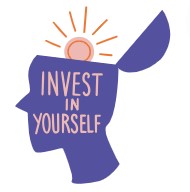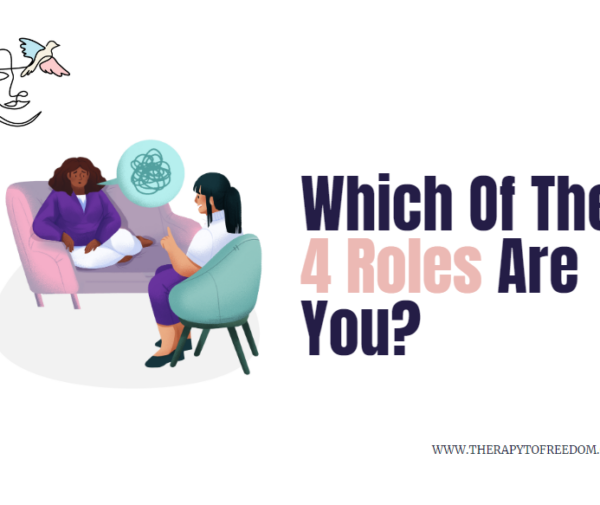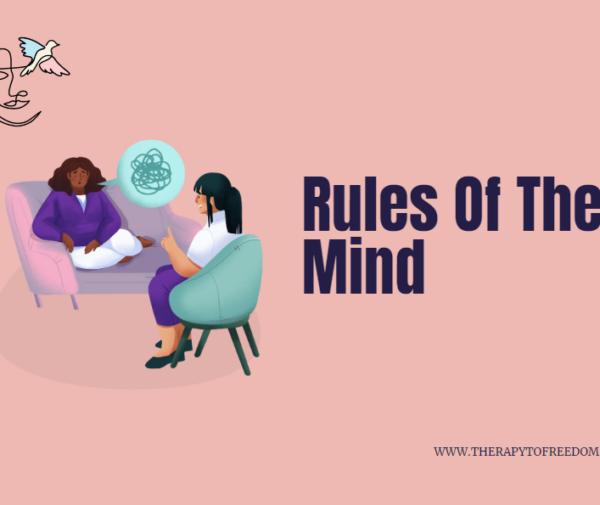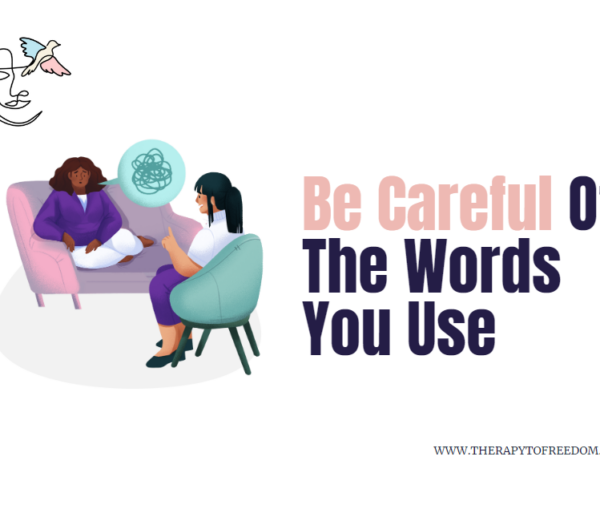Overcome Fear of Rejection: Effective Therapy for Lasting Change and Confidence.
Rejection Sensitve Dysphoria Therapiest – RSD can be delibitating and cause low self esteem, confidence, anxiety and depression. However this can be beaten and you can overcome this for good. I can help you to understand and overcome your fears of rejection and transform your life, freeing you from the constraints that hold you back from your living fully and being happy.
Common difficulties associated with RSD
- Fear of Abandonment
- Fear that noone likes you
- Feeling Guilt and/or Shame
- Not Feeling Good Enough
- Social Anxiety
- Lack of Confidence and Low Self Esteem.
- Feeling Excluded
- Feeling Lonely and Isolated
Understanding Rejection Sensitive Dysphoria (RSD)
Rejection Sensitive Dysphoria (RSD) is an emotional condition that is often linked with Attention Deficit Hyperactivity Disorder (ADHD), though it can occur in individuals without ADHD as well who may have experienced past trauma or negitive expereinces. RSD is characterised by an intense emotional response to perceived or actual rejection, criticism, or failure. Individuals with RSD experience these feelings more deeply than typical emotional responses, and the pain can be so severe that they might go to great lengths to avoid situations where rejection is possible. It can also lead to significant anxiety and depression if untreated and can seriously effect people lives where they may become suicidal if not addressed or resolved.
Those with RSD might interpret a neutral situation as negative or perceive an offhand remark as a deep personal criticism, leading to rapid and intense emotional reactions such as sadness, anger, or even withdrawal. This sensitivity can significantly impact a person’s self-esteem and can complicate personal relationships and social interactions.
How Can Subconscious Therapy Help
Rapid Transformatonal Therapy involves psychological therapies such as subconsious therapy, cognitive-behavioral therapy (CBT), psychotherapy and NLP, to help individuals cope with their intense reactions to rejection. Past experiences and learned behaviours, can cause someone to expereince RSD, therefore it can be unlearned through effective therapy and by replacing old thought patterns and beliefs with new, postive and kinder ones.
The Subconscious Therapy Process
The journey begins with a guided meditation into a relaxed state where I can help you to access the subconscious mind to find out the root cause and beliefs behind the fear or rejection. I aim not only to alleviate the immediate symptoms but also to equip you with the positive self beliefs, confidence and mindset to overcome your fear of rejection for good and maintain your newfound freedom from this. For many, the impact of this therapy is profound, offering relief from rejection fears that have long overshadowed their lives for many years previously.
Why Choose me to help you Overcome Fear of Rejection?
I understand that each person’s experience with fear is unique, and I am dedicated to providing a safe, supportive environment for your healing. I am are highly trained in the latest Subconscious Therapy successful techniques for fear overcoming the rejection, ensuring that you receive the most effective help. Having suffered with RSD myself for many years previously and having overcome this myself, I know it is possible. I believe in empowering my clients, helping them to achieve not just temporary relief but a lasting change that enhances their overall well-being and quality of life for good.
If you’re ready to release the hold that fear of rejection has on your life, contact me book a consultation and learn more about how I can help you to achieve this. Let me guide you on your journey to freedom from rejecton for good.
Contact Me
Request Your Free Consultation
My Therapies
 FREE Download
FREE Download
Get Your FREE Subconscious Therapy Relaxation & Sleep Recording

Social Media
My Therapies
FREE Download Download your free relaxation recording for better sleep!
Rejection Sensitive Dysphoria
Got a Question?
What is Rejection Sensitive Dysphoria?
Rejection Sensitive Dysphoria (RSD) is a condition that is characterised by extreme emotional sensitivity and pain triggered by the perception that one has been rejected or criticised by significant others. This condition is most commonly associated with Attention Deficit Hyperactivity Disorder (ADHD), but not everyone with ADHD experiences RSD, and it can occur in others without ADHD who have experience past trauma, neglect, or abandonment from their parents or past care givers.
Causes:
The exact cause of RSD is not fully understood, but it’s thought to be linked to both neurological and psychological factors:
- Neurological: People with ADHD often have dysregulated neurotransmitter systems, particularly involving dopamine, which could heighten emotional responses.
- Psychological: Those with RSD might have heightened vulnerabilities due to past experiences of rejection or failure, leading to an increased perception of these experiences as catastrophic.
Impact on Lives:
RSD can significantly affect one’s quality of life and emotional well-being:
- Relationships: Individuals with RSD may avoid intimate relationships or close friendships due to fear of rejection. They might also react disproportionately to criticism or perceived slights within relationships, which can create conflict and misunderstanding.
- Social Interaction: There may be an avoidance of social situations where there is a risk of judgment or rejection, potentially leading to isolation.
- Professional Life: In a work setting, a person with RSD might avoid opportunities for advancement that involve increased scrutiny or evaluation, or they might react strongly to feedback, complicating professional growth and interactions.
- Mental Health: The intense emotions associated with RSD can contribute to anxiety, depression, and low self-esteem.
By addressing RSD, individuals can improve their interpersonal relationships, enhance their social interactions, and better manage professional challenges, thereby improving overall life satisfaction and happiness.
Who can benefit from hypnotherapy for RSD?
Hypnotherapy can benefit a wide range of individuals who experience intense emotional reactions to rejection, criticism, or failure. These reactions often feel uncontrollable and can affect various areas of life. Specific groups who may benefit include:
- Individuals with ADHD: RSD is commonly associated with ADHD. People with ADHD often struggle with heightened emotional sensitivity, and hypnotherapy can help manage these responses by addressing subconscious triggers and building emotional resilience.
- Professionals and Students: If your career or studies involve regular feedback, hypnotherapy can help you process constructive criticism without taking it personally or feeling overwhelmed. This can improve focus, productivity, and professional relationships.
- People in Personal Relationships: Sensitivity to perceived rejection can strain relationships with partners, friends, or family. Hypnotherapy helps you develop healthier thought patterns and communication skills, enabling stronger, more balanced relationships.
- Anyone Feeling Overwhelmed by Emotional Sensitivity: If rejection or criticism triggers disproportionate emotional pain or avoidance behaviours, hypnotherapy offers a supportive path to gaining control over these feelings.
Ultimately, hypnotherapy is highly adaptable, making it suitable for anyone seeking to reduce their sensitivity to rejection and improve their overall emotional well-being.
What happens during a hypnotherapy session for RSD?
A hypnotherapy session for RSD is a personalised and structured process designed to create a safe, supportive environment for addressing the underlying causes of your emotional responses. Here’s what you can expect:
Initial Consultation:
- Your therapist will start by discussing your specific experiences with RSD, including the triggers and situations that cause emotional pain.
- You’ll identify personal goals, such as improving self-worth, reducing emotional reactivity, or handling rejection more calmly.
- The therapist may explain the role of the subconscious mind in amplifying emotional responses and how hypnotherapy can help.
Induction into a Relaxed State:
- The session begins with guided relaxation techniques, such as deep breathing or visualisation, to help you reach a hypnotic state.
- This relaxed state allows access to your subconscious mind, where ingrained patterns and beliefs can be addressed.
Exploration and Reprogramming:
- The therapist will work with you to identify and challenge subconscious beliefs contributing to your RSD, such as feelings of unworthiness or fear of failure.
- Positive suggestions and affirmations are introduced to replace negative thought patterns with empowering ones, such as confidence and resilience.
Practical Tools for Everyday Use:
- At the end of the session, your therapist may provide tools like mindfulness exercises, grounding techniques, or self-affirmations to help you manage RSD symptoms in real-life situations.
- You’ll leave with a greater understanding of your emotional triggers and strategies to handle them effectively.
How long does it take to see results from RSD Therapy?
How long does it take to see results from hypnotherapy for RSD?
The timeline for seeing results varies from person to person, depending on the intensity of their symptoms, the depth of the emotional patterns being addressed, and their commitment to the process. However, hypnotherapy is often considered a faster approach than traditional talk therapy.
Initial Progress:
- Many individuals report noticeable improvements after just 4 weeks, including reduced emotional reactivity and a greater sense of calm in triggering situations.
- Early sessions often focus on building a foundation of relaxation and understanding your emotional triggers.
Deeper Changes:
- For individuals with long-standing or deeply ingrained sensitivities, hypnotherapy may take 4 weeks or more to fully address the subconscious patterns driving RSD.
- The additional sessions allow for deeper exploration and reprogramming of limiting beliefs.
Long-Term Benefits:
- Hypnotherapy doesn’t just provide immediate relief—it equips you with long-lasting tools to manage your emotions effectively.
- The positive effects often continue to grow as you apply the techniques learned during therapy to everyday challenges.
Factors Influencing Results:
- Frequency of Sessions: Regular sessions, spaced appropriately, help reinforce progress.
- Personal Engagement: Practicing the techniques provided by your therapist between sessions can accelerate and deepen your transformation.
- Severity of Symptoms: Individuals with mild symptoms may experience faster results, while those with more complex emotional patterns may require additional time.
With hypnotherapy, most clients find they can achieve significant relief and improved emotional resilience, empowering them to handle rejection and criticism with confidence.



